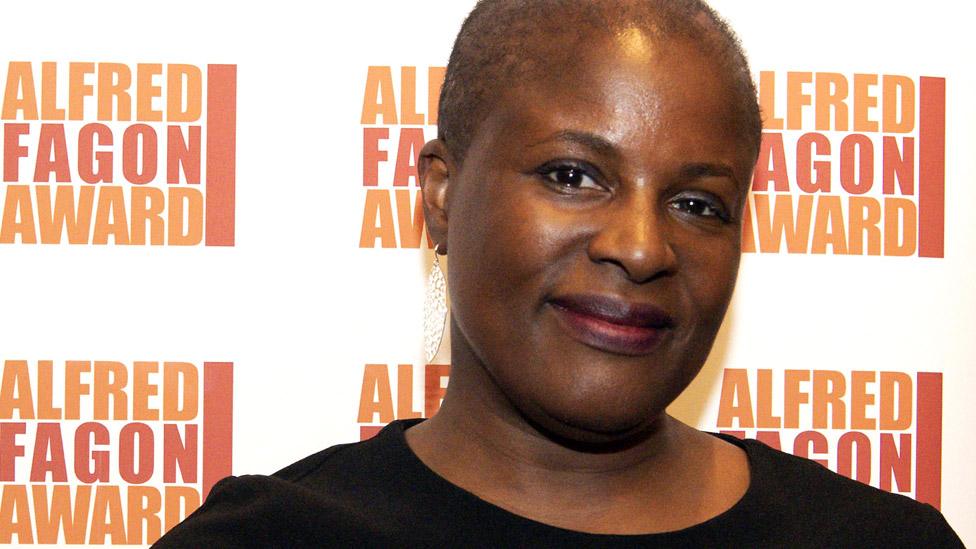Black actor Alfred Fagon's statue damaged in Bristol
- Published
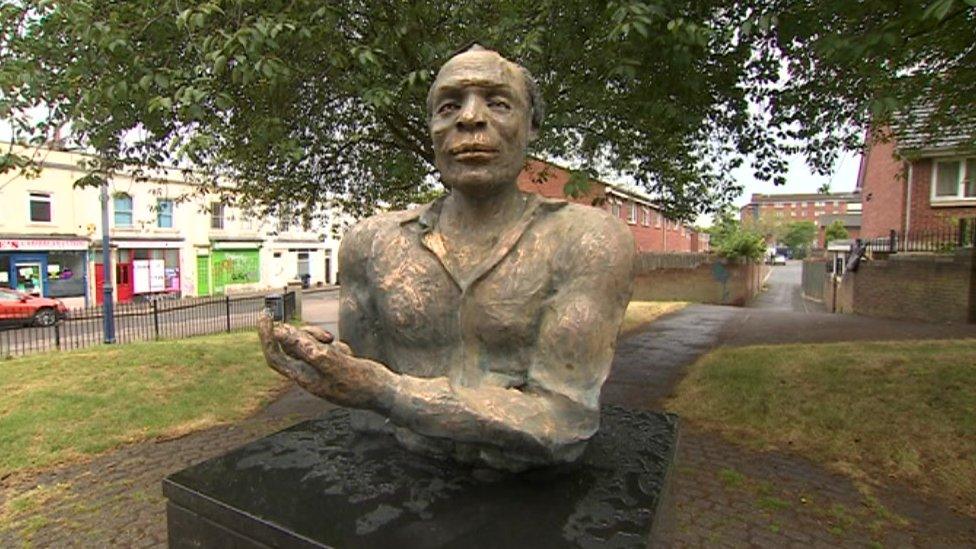
It is not yet known whether the statue has been permanently damaged
A statue of a Jamaican poet, playwright and actor has been covered with what appears to be a corrosive substance.
The monument to Alfred Fagon in St Pauls, Bristol, was erected in 1987 on the first anniversary of his death.
Mr Fagon was the first black person to have a statue erected in their honour in the city.
It was reported on Thursday to police, who said it was being investigated as criminal damage and inquiries were continuing.
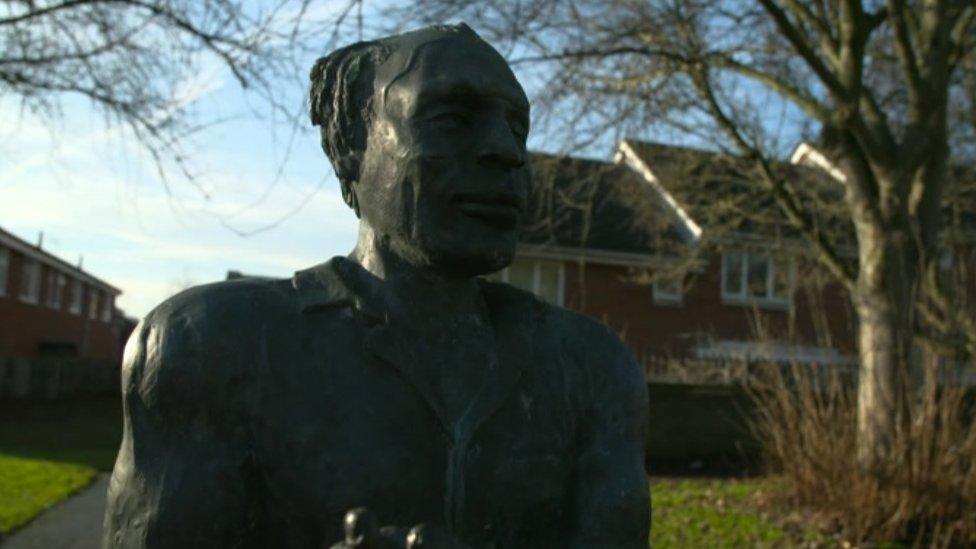
The statue was erected in green space off Grosvenor Road on the first anniversary of Alfred Fagon's death in 1987
Avon and Somerset Police said it was liaising with Bristol City Council to establish ownership of the statue and to determine if it had suffered any permanent damage.
It comes after Black Lives Matter anti-racism protesters tore down a statue of slave trader Edward Colston in Bristol on Sunday.
Since that statue was toppled several other statues around the UK of people linked to the slave trade have been removed, or it has been announced that they may be taken down.
'Laughed at it'
Mr Fagon's sister-in-law, Judy Malone-Fagon, said if it was vandalism, it was "ignorant and idiotic".
"It's the only statue to a black person in Bristol, who would do something like that?" she said.
"It's shocking. Alfred didn't do anything to anyone but he would definitely have laughed at it, he was so much bigger and better than that."
Anton Phillips, an actor and friend of Mr Fagon, said following the "dumping" of the Colston statue it "doesn't surprise me".
"My memory of Alfred is he quite liked to laugh at things," he said.
"So I don't think he would have been angry, he would have laughed his head off about the absurdity of it and might have written something about it."

Who was Alfred Fagon?
He was born in Jamaica in 1937, the third of nine brothers and two sisters.
At the age of 18 he came to England to work on the railways before joining the army before moving to Bristol to work as a welder in the 1960s.
One of his first plays, No Soldiers in St Pauls, explored the social tension between the police and the black community in 1970s Bristol.
His final role was in the BBC's Fighting Back, set in St Pauls.
He died suddenly from a heart attack on 28 August 1986 outside his flat in Camberwell, London.
At the time police claimed they were unable to identify him and he was given a pauper's funeral.
The annual Alfred Fagon Award was named after him and is for playwrights of Caribbean or African descent, resident in the UK.

- Published8 June 2020
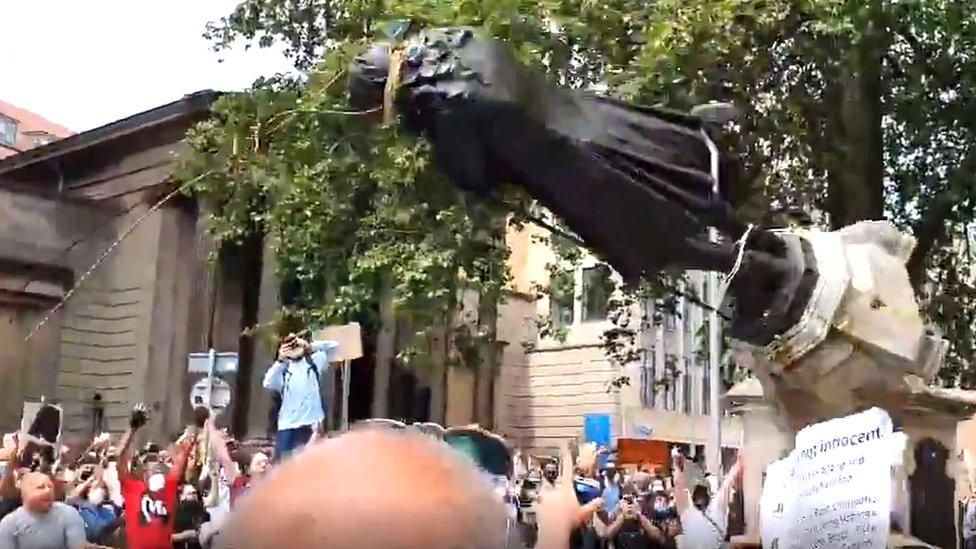
- Published8 June 2020
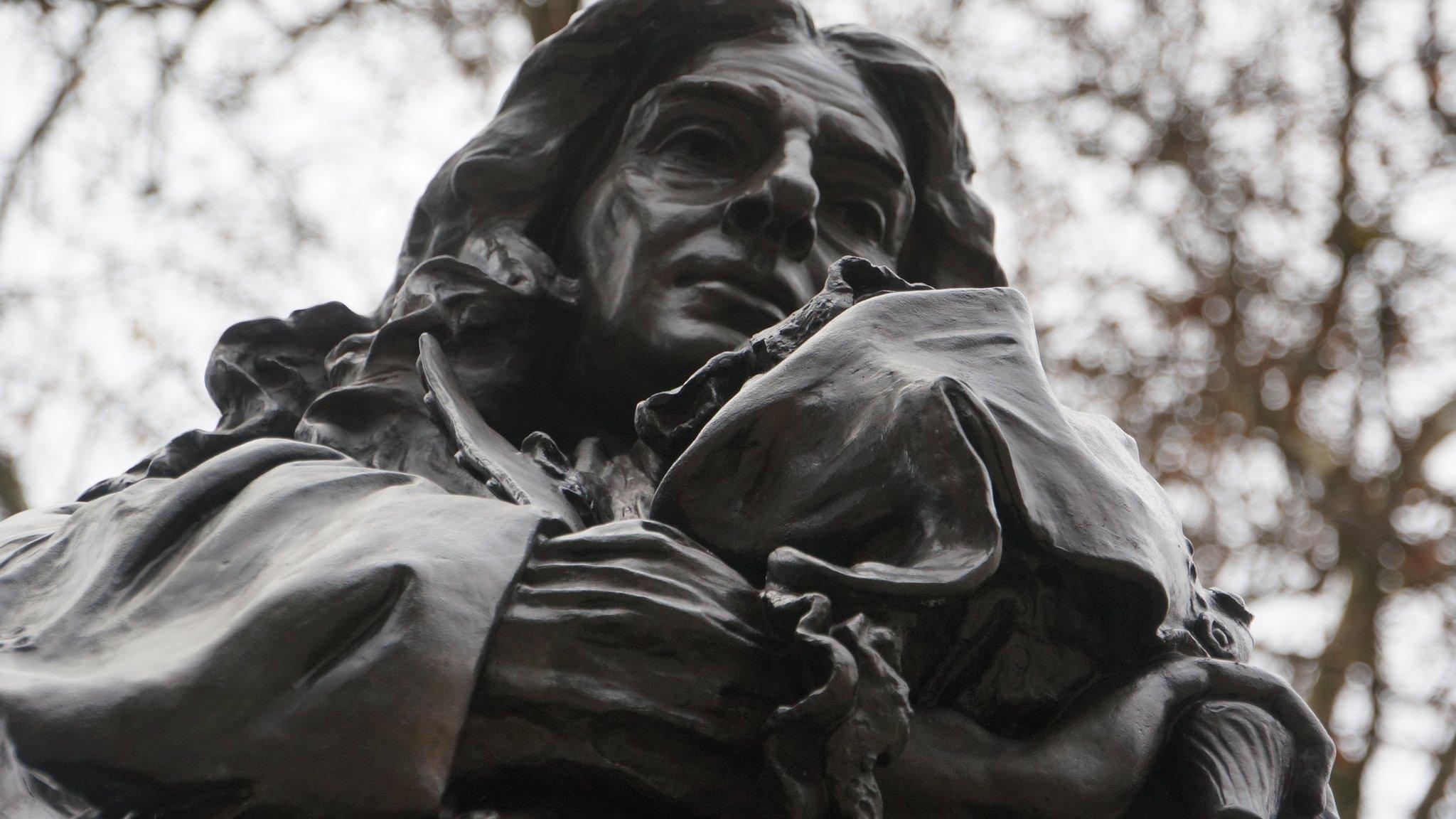
- Published18 March 2020
